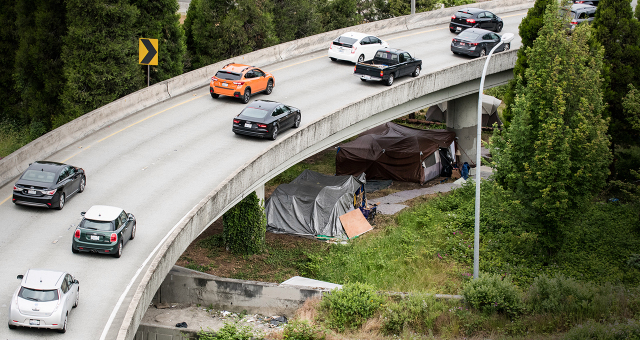Democrats and Republicans differ on whether addressing economic inequality requires major changes to the economic system
With about a month to go before the first caucuses and primaries, the issue of economic inequality and how to tackle it remains a focal point in the race for the Democratic presidential nomination, and it will likely continue to be a central issue in the general election. About six-in-ten U.S. adults say there’s too much economic inequality in the country these days, and among that group, most say addressing it requires significant changes to the country’s economic system, according to a new Pew Research Center survey.
Still, relative to other issues, reducing economic inequality doesn’t rank high on the public’s list of priorities for the federal government to address. About four-in-ten say this should be a top priority, far smaller than the shares who say the same about making health care more affordable, dealing with terrorism or reducing gun violence.
Democrats and Democratic leaners are much more likely than Republicans and those who lean to the GOP to say reducing economic inequality should be a top priority for the government (61% vs. 20%). Similarly, Democrats are nearly twice as likely as Republicans to say there’s too much economic inequality in the U.S. these days (78% vs. 41%).
Among those who say there’s too much economic inequality, seven-in-ten think some amount of inequality is acceptable, and this is the case among majorities of Democrats (68%) and Republicans (77%). About three-quarters of Democrats who say there’s too much economic inequality (74%) say addressing it would require major changes to the economic system, and 14% say the system needs to be completely rebuilt. Half of their Republican counterparts say the system requires major changes, and 12% think it needs to be rebuilt.
In addition to partisan differences, the survey finds that views on economic inequality often vary across income levels. For example, about half of lower-income Americans (52%) say reducing economic inequality should be a top priority for the federal government to address; smaller shares of those with middle (39%) or upper incomes (36%) agree. And while somewhat similar shares across income groups say there’s too much inequality in the country these days, 85% of upper-income adults who say this think some amount of inequality is acceptable, compared with 72% of those with middle incomes and 59% of those with lower incomes.
Asked about what contributes to economic inequality in this country, Democrats are more likely than Republicans to point to structural factors, such as the tax system (56% of Democrats vs. 30% of Republicans say this contributes a great deal) and problems with the U.S. educational system (49% vs. 38%). In turn, Republicans are more likely than Democrats to say that the different life choices people make (60% of Republicans vs. 27% of Democrats) and some people working harder than others (48% vs. 22%) contribute a great deal to economic inequality.
Juliana Mesasce Horowitz, Ruth Igielnik, Rakesh Kochhar – Pew Research Center – January 9, 2020.




